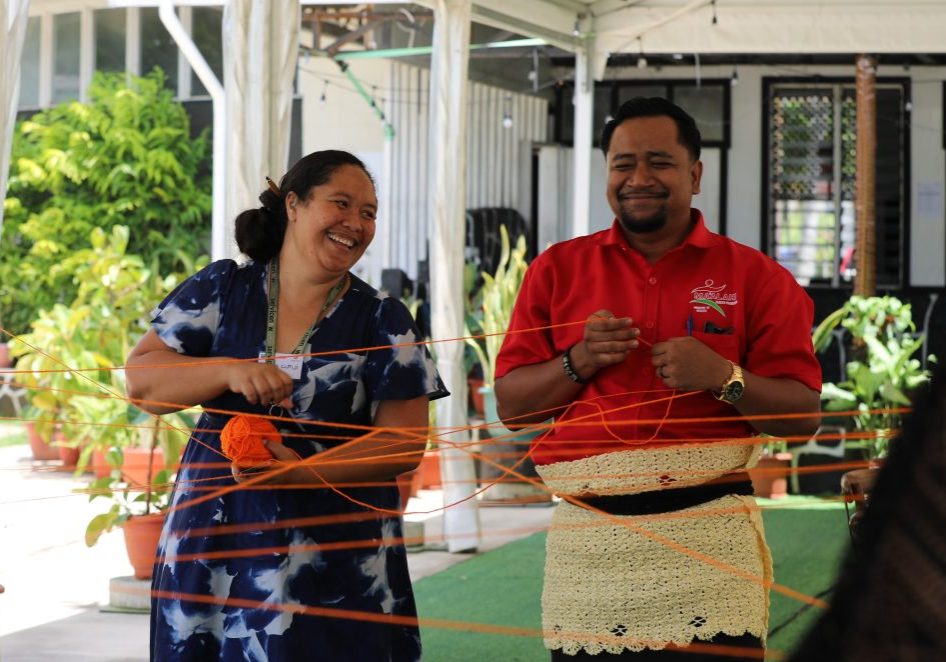Building a resilient future: insights from the 6th EMT Global Meeting
05 Dec 2024
Written by Michelle Foster
The 6th Emergency Medical Team (EMT) Global Meeting organised by the World Health Organization (WHO) was held this year in Abu Dhabi, United Arab Emirates. The biennial gathering brought together key stakeholders from around the world involved in emergency medical response.
More than 1,300 participants from 140 countries including experts in emergency management, disaster medicine, and humanitarian aid came together over three days from 5-7 November to discuss strategies, share best practices, and strengthen the global network of EMTs.
NCCTRC Executive Director Professor Len Notaras AO received a standing ovation for his significant contributions as Chair of the EMT Strategic Advisory Group (SAG). He delivered a keynote speech entitled "Milestones and Momentum: Reflecting on the Journey of Progress and Possibilities for the EMT Initiative". The speech highlighted the advancements and future directions of the EMT initiative, emphasising the importance of strategic planning and global collaboration in emergency medical response. Professor Notaras also participated in high-level strategic discussions, focusing on critical issues such as climate change and health emergencies. His insights and leadership helped shape discussions around enhancing global health emergency preparedness and response capabilities. Additionally, his role in the certification of new EMTs underscored his commitment to expanding and strengthening the global network of emergency medical teams. Through these contributions, Professor Notaras has played a pivotal role in advancing the goals of the EMT Global Meeting and reinforced the importance of coordinated, high-quality emergency medical responses worldwide.
As the world faces increasingly complex challenges, from climate-induced disasters to pandemics, the NCCTRC’s leadership in disaster response and preparedness will remain invaluable.




Professor Notaras said: “As the world faces increasingly complex challenges, from climate-induced disasters to pandemics, the NCCTRC’s leadership in disaster response and preparedness will remain invaluable. Its participation in events like the EMT Global Meeting serves as a reminder of the critical role that organisations like the NCCTRC play in safeguarding lives and fostering global solidarity.”
The NCCTRC’s delegation to the meeting emphasised its commitment to supporting WHO's EMT framework and improving global emergency response systems.
At the meeting, the NCCTRC shared lessons learned from deployments to natural disasters and crises, including its responses to the COVID-19 pandemic. These case studies underscored the importance of preparedness, coordination, and cultural sensitivity in delivering healthcare in diverse settings. It also showcased its contributions to global capacity-building efforts, including the training of EMTs in the Pacific region and partnering with other nations to strengthen their health emergency capabilities. The NCCTRC highlighted its use of innovative technologies, such as the Toolbox Hub, to enhance the effectiveness of EMTs.
Additionally, The NCCTRC emphasised its collaborations with regional and global partners as a model for fostering resilience and sustainability in emergency response systems. A critical aspect of the NCCTRC’s advocacy at the meeting was promoting diversity and inclusion within EMTs which included ensuring equitable access to healthcare during emergencies and empowering women within EMTs.













